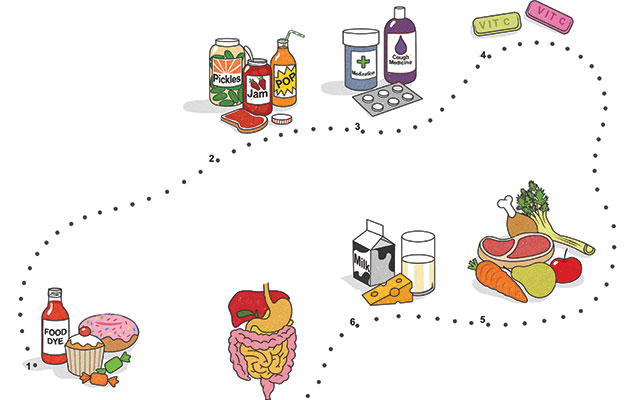Have you repeatedly made a commitment to get in shape but then put it off? Or have you thrown yourself into it for a while and then suddenly lost steam? During your workouts, do you often get impatient, fidgety or easily bored? If these descriptions ring true for you, there may be a hidden cause that could be derailing your efforts: Attention Deficit Disorder (ADD).
ADD is a disorder that is characterized by a problem with concentration and staying focused. People with ADD tend to be easily distracted and have trouble following instruction. Moreover, they’re often forgetful and not well organized. Experts often refer to the following subtypes of ADD: predominantly inattentive, predominantly hyperactive-impulsive, attention-deficit hyperactivity disorder (ADHD) or some combination thereof.
The exact cause of ADD is unknown, though experts suspect there is a relationship between ADD symptoms and an imbalance of certain brain chemicals that help regulate attention and activity (the neurotransmitters dopamine and norepinephrine). Another possible cause is abnormal function of the prefrontal cortical lobe, which causes problems with attention and impulse control.
When it comes to fitness, ADD can sabotage your efforts by causing you to procrastinate. You may also skip workouts, fail to complete full sets or get bored easily and quit your workouts early. In fact, ADD can keep you from even beginning a fitness program.
Wandering Mind
Over the years, I’ve had many clients who’ve suffered from ADD, most of whom couldn’t lose weight or get fit until their ADD was addressed. One such client, Robert, had a classic case of ADD, but he wasn’t aware of how much it held him back until he began to work out.
When I spoke to him for the first time at the gym, he had no clear sense of his goals, he talked in circles and often seemed lost in his thoughts. Moreover, he always appeared restless and couldn’t stay focused on any one thing.
Over time, as it became clear he wasn’t achieving his goals, I referred Robert to a physician who was familiar with ADD. Once Robert was diagnosed with ADD and began getting treatment, his demeanor completely changed.
Before, whenever I offered Rob advice, he would instantly tune me out. Now he became considerably more attentive, less on edge and more relaxed. In the first month after his diagnosis, he lost 8 pounds and greatly increased his strength. Within six months, he surpassed all of his initial goals.
Diagnosis and Treatment
There are general tests and symptom checklists that can help determine if you suffer from ADD. If you suspect that ADD affects you, consult your doctor for a diagnosis. Then investigate your treatment alternatives.
Medication is one option: Wellbutrin (an antidepressant drug) and stimulant drugs like Ritalin and Cylert (which Rob effectively used) can have remarkable results. Yet you may also want to investigate natural treatment options. For instance, many experts believe that food and chemical allergies, food intolerances (especially to sugar) and nutritional deficiencies (of omega-3 fatty acids, for example) can all contribute to ADD, so you may wish to consider seeing an integrative practitioner familiar with the disorder.
What about exercise? Well, it’s a Catch-22: Regular, intense exercise has been shown to have a positive effect on neurotransmitters related to ADD, but, as noted, ADD can make it tough to stick to a regular routine.
Some experts recommend that people with ADD alter their workout regimens to make them as structured as possible. The idea is that, in addition to building in more accountability and minimizing opportunities for distraction, making exercise a formal ritual can help you solidify your commitment: It can help prevent you from “forgetting” that you’re resolved to get and stay fit.
You might join a group activity, such as a spinning or strength-training class, that meets at a certain time and location and always on the same day. You may also want to consider hiring a personal trainer and setting up a firm schedule of appointments. Even participating in a team sport like basketball can help because the element of competition generates greater concentration and focus.
Don’t allow ADD to keep you from reaching your full potential. Explore it, address it, and see what happens when your focus is strong and clear.
Do You Have Adult ADD?
Here’s a simple test. Use the rating scale below to evaluate how well each of the following statements best describes you.
RATING SCALE
1 Strongly Disagree
2 Somewhat Disagree
3 Neither Agree nor Disagree
4 Somewhat Agree
5 Strongly Agree
- You often procrastinate and have trouble beginning tasks
- You often experience a sense of underachievement or of failing to meet your goals (regardless of your status or the amount of success you’ve achieved)
- You often act impulsively and have a tendency to “speak before you think” (you often say what’s on your mind at inappropriate times)
- You rarely follow through on new ideas or simple tasks
- You often sabotage your efforts as you’re about to achieve a goal (pursuing a goal excites you, but achieving one leaves you flat)
- You’re often very disorganized (your office or house is a mess)
- You crave stimulating and new activities and challenges
- You are prone to extreme and inaccurate self-observation (you tend to exaggerate how good or bad you really are)
- You’re easily bored – it’s rare that anything interests you for long
- You either have trouble focusing or are focused to an extreme (you either get very distracted or you’re so focused that you’re able to block everything else out)
- You’re intelligent and creative, with a strong intuitive sense
- You tend to be very impatient (about trying to lose weight, for example)
- You are prone to obsessive-compulsive worrying – or to not worrying when you should (for example, you’ll stay on the golf course in the midst of a lightning storm)
- You are prone to restless thoughts and behavior, such as pacing or wringing your hands
- You have a tendency toward addiction and/or habits you can’t break
- Details make you crazy – you’re put off by tedious tasks
- You have a family history of manic-depressive illness, ADD, depression, addiction (substance abuse) or problems with impulse control
- You often experience muddled or racing thoughts that feel like they’re out of control.
If you responded with a 4 (“somewhat agree”) or 5 (“strongly agree”) for five or more of the items above, it’s quite possible your fitness (and life) may be hindered by ADD. Seek a professional diagnosis and investigate your treatment options by consulting some of the recommended resources at right.
Michael Gerrish, MS, is the author of The Mind-Body Makeover Project: A 12-Week Plan for Transforming Your Body and Your Life (McGraw-Hill, 2003) and When Working Out Isn’t Working Out: A Mind-Body Guide to Conquering Unidentified Fitness Obstacles (St. Martin’s Press, 1999). Formerly a conditioning consultant for the Boston Red Sox and Boston Bruins, he is an exercise physiologist, psychotherapist and certified thought-field therapist. Visit his Web site at www.exerciseplus.com.
This article originally appeared as “Finding Your Focus”.



This Post Has 0 Comments